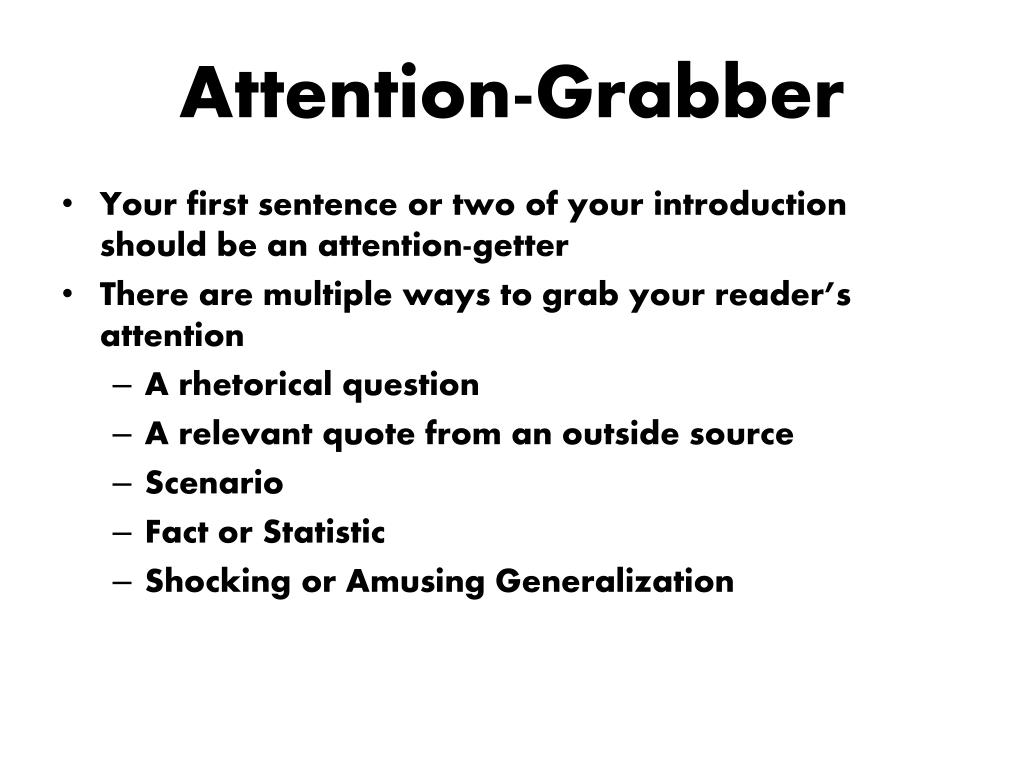

It shows how knowledgeable you are and motivates the readers to engage in the text. It will present you as an established writer. Use a famous quote as a hook for your essay on history, literature, or even social sciences. It will work correctly for your essay, too! 💬 The Famous Quote Hook It makes the readers more eager to read till the end to find out the answer. An intriguing question that you will answer later in the text is an excellent hook as it spikes the interest.

However, there is one trick that works well for any kind of writing. Such type of attention grabbers is more suitable for essays on personal topics. On the other hand, they have some limitations as well. Personal experience or a funny joke can be good hooks as well.

However, if your essay is scientific, you can try putting an interesting little-known fact at the beginning. For example, using cliche sentences may disengage your readers. It depends on the type of writing and target audience. It can be hard to come up with a right hook at first. Starting your essay off a boring fact is simply not a good idea. Use an intriguing question, and a reader dies to find out the answer. It keeps the tension on the right level.Only the readers you want will keep reading. A right hook presents you as an expert in your field. If you did it right, they read the whole piece. Writing the right hook is essential for a few reasons: Though, it better be a short paragraph or even a sentence. Some writers make it last for several pages. It shows that the content below is worth reading. What Is an Essay Hook?Īn essay hook (or narrative hook) is a literary technique that writers use to keep their readers engaged. The average length of an essay hook should be 3-7 sentences, depending on the topic.īut first, let’s quickly go through the key questions. The hook of your essay usually appears in the very first sentence.
ATTENTION GRABBER EXAMPLES FOR SPEECHES HOW TO
💎 How to Write a Hook That Will Work for Your Essay? We’ll deliver a custom paper tailored to your requirements. We highly recommend reading all the methods and examples, so you don’t have any questions.

This can be accomplished with a hypothetical situation (“imagine that you are walking through the forest”), or with an anecdote (“imagine that you are Sam, a forest ranger in Alaska”).We highly recommend reading all the methods and examples, so you don’t have any questions: Hypothetical example-This device asks your audience to envision a scenario as if it were happening to them. For example, if your topic is related to the education system, you may refer to historical examples of the founding of certain schools or universities. A historical example can refer back to a specific time or event for comparison or inspiration. Historical anecdote-This story describes a historical event. For example, if you are speaking to college freshmen about time management, you may share some of your own struggles and successes as a freshman. Personal anecdote-This story describes your personal experience with the topic. An anecdote might be useful to make a connection with the audience, tell a story, or help the audience visualize the main points. Anecdotes are short stories that illustrate the main points of the speech.


 0 kommentar(er)
0 kommentar(er)
